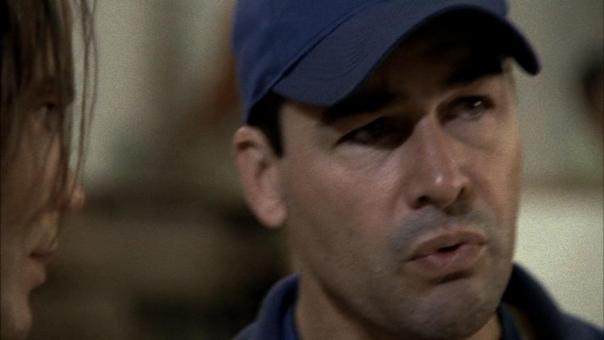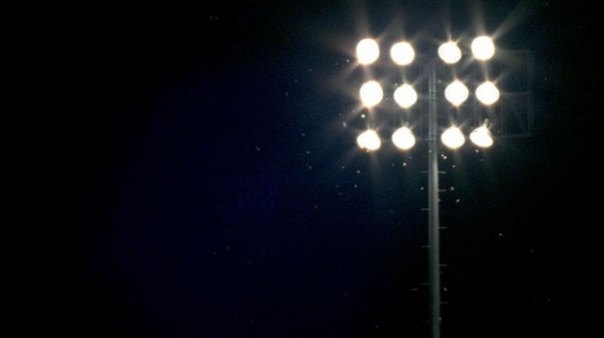by Preposition Joe
Warning – this post contains some spoilers.
There’s a passage in “Zen and the art of Motorcycle Maintenance” where a student is suffering from writer’s block. They have to write a five-hundred-word essay about the USA and they can’t get started. The teacher advises them to narrow it down to their home town. Still they can’t get going. How about the main street of their home town? Still blocked. Finally the teacher tells them, pick just one building on main street and start writing about it; start with the top left corner and go from there — start with the top left brick if you have to. The student comes back in a daze having written five thousand words.
“Friday Night Lights” began as a book in 1990, and the writer’s scope was narrow enough — to follow one Texas high-school football team for one season. The book led to a 2004 film of the same name, and the film led to a TV series which ran for five years.
If you like compelling TV drama, and if it’s not already too late because you stopped reading when you saw the word “football”, or maybe “Texas”, the best thing I can do for you is to tell you what the show is not about, then just step out of your way and let you plunge into it.
There’s probably a football term for that, isn’t there? End zone, drop kick, double back? I wouldn’t know. I love this show and not only don’t I understand American football, I actively dislike American football.
“Friday Night Lights” is not about football. It centres on a school, and the school’s football coach and his family, but that’s just the top-left-brick, the nucleation point for a rich, sprawling, surprisingly subtle drama about small-town life, the kind of people who fiercely love their small town and the people who desperately want to leave. Bissinger didn’t write a book about Odessa, Texas because he liked the climate (116 in June, minus 11 in January). In a place like that, a lot of energy is focused on high-school football, because there’s not much else. And the path from success in high-school football to college is one of the few ways out for young working-class men.
So, it’s not about football. It’s also not about Texas, no so much that it matters, and most surprisingly of all it’s not all about blokes. “Friday Night Lights” has terrific, vital female characters and its audience skewed strongly female. The coach’s wife is involved with school life, first as principal of one school then counsellor at another, and storylines build around issues like reproductive rights and sexual assault. (this is a culture where the football players get assigned their own personal “rally girl”, a kind of secular handmaiden). Race is also a factor, with tensions between black and white players and townspeople part of the mix.
Perhaps the show’s one main over-arching theme is fatherhood, or fatherlessness. Nearly all the characters have to come to terms with the absence, or the failure, of one father figure or another, and one reason a football coach works as the central figure is because he’s a surrogate father provided by the state – in some cases mandated by the state, as some of his team are part of a diversionary program giving young offenders a second chance.
The show isn’t without its flaws. Most fans agree that it took a lurch into melodrama at the start of its second season, and the writers’ strike of 2007 left it somewhat hamstrung too. And of course, if you set your drama in an educational institution, some of your best actors have to move on when they graduate. But there’s a reason “Friday Night Lights” won critics’ and writers’ awards, a Peabody, an Emmy, and multiple Best Actor Emmy nominations for its two central cast members, Kyle Chandler and Connie Britton. Like all the best TV shows it lets you spend time with some interesting, unpredictable people, people about whom you find yourself really wanting to know: what happens next?
One reason for the show’s compelling nature is its unusual shooting methods. Even if you’re still convinced it’s not for you, if you’re interested in TV production, watch one episode to check out the direction, the performances, the way the camerawork maps to the actors’ performances rather than the other way around. When actor/director Peter Berg shot the Friday Night Lights film, he used confronting, disorienting, shaky-cam, particularly in the game sequences. For the TV series, he reworked standard practices, dispensing with traditional “blocking” and even rehearsal, letting the actors rewrite their lines and training camera operators to follow characters rather than let the action be dictated by traditional lighting and staging cues.

The performances this method draws from its actors are uniformly good: Connie Britton, as the coach’s wife Tami, is warmhearted and brash, endlessly engaging with the people around her, never quiet, never still, pushing and prodding at injustices and wasted potential. Kyle Chandler as the coach is almost the opposite: all his certainties are on the field. Off it, he’s got to balance the expectations of a football-mad community, his wife and his teenage daughter. The joke in our family is that his signature acting move across the entire five years of the show is to say and do almost nothing, except to wear an exquisite Dad expression that says ‘oh for god’s sake, what now?‘. Other standout performances are from Adrianne Palicki as Tyra, a young woman determined not to repeat her mother’s and sister’s bad decisions in life; Zach Gilford as Matt, mumbling and stumbling through life, thrust into the role of star player, and the coach’s daughter’s boyfriend, despite himself; and in later years Michael B Jordan (who you may know as Wallace in “The Wire”) as Vince, who struggles heartbreakingly to hold together what little family he has, himself and his addicted mother, and then faces even tougher choices as his father returns from jail and threatens what he’s achieved.
Here’s a little moment, completely unimportant to anyone’s arc or the progression of the plot, which sums up what I love about the show: in season 2 episode 9 the show’s supreme bad boy, small-town Brando/James Dean figure Tim Riggins, is being punished for his failings on the field and off. He’s been assigned the humiliating role of assistant to the girls’ under-fifteen gymnastics team. Coach Taylor stops by to make sure he’s behaving himself. Is everything all right? Not really, says Riggins. Eight point six isn’t bad but, come on, Stacey can do better than that. She really needs to work on those backflips. He’s forgotten he’s being punished and got into the action despite himself. Coach Taylor says not a word. He has that look on his face again. It’s not what he expected. Which is good.

Just started watching this – the first series has turned up on Virgin’s on-demand service – and it really is very good. I do find an utter ignorance of American Football to be a slight, but not negligible, disadvantage, though. Moments of dramatic tension are lessened a bit when my lack of knowledge of the scoring system means I can’t tell how close, or how far apart the scorleines are.